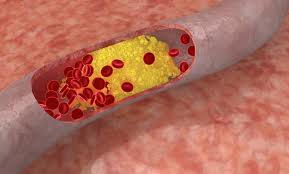Fire!
When we see firemen running towards a fire and other firemen on the scene quenching the fire, do we blame the firemen for the fire?
We recognize that with all these firemen working, there must be something wrong. But do we think that the firemen are the cause and think that if we reduce the numbers of firemen everything will be OK?
No, we look for the fire and ways to stop fires from starting.
Cholesterol is the body’s natural response to a “fire,” meaning inflammation. So why reduce cholesterol levels, without looking for where the cholesterol is going and what purpose it serves?
Cholesterol as Anti-Oxidant
Cholesterol itself acts as the primary natural anti-oxidant, and a very effective one.
One reason the body makes cholesterol is to protect the tiny arterial blood vessels from oxidative damage. The heart, kidneys, and brain especially need an uninterrupted blood supply. Cholesterol is not the cause of disease of the arterial walls, but the consequence.
The body sends at least 12 different compounds to put a slippery bandage at sites of damage, so blood will flow smoothly again, cholesterol being one.
I think it is being singled out for unfair treatment! The witness is accused of being the murderer!
Sixty percent of first heart attacks happen in men with normal cholesterol levels. Statistics show that since the beginning of giving of medications to bring down cholesterol levels, no deaths have been prevented.
Instead, one thing that has changed is that the world has been flooded with foods imbalanced in fats, effectively pushing our bodies towards the production of more and more inflammation.
A balance of omega 3 to 6 fatty acids in the diet as well as the stimulation of the production of lecithin in the liver can begin to stop the inflammatory process and repair inflamed blood vessel walls.
Cholesterol is Necessary for Hormones
Cholesterol is the molecular backbone of all the male and female sex hormones. These are involved in many body systems and help maintain a sense of wellness.
Cholesterol is also necessary for the formation of adrenal hormones that control such things as water balance, inflammation, and the regulation of the metabolism of proteins, fats, carbohydrates, and the electrolytes sodium and potassium.
High cholesterol levels can signal something amiss with the body’s hormonal balance.
On the other hand, too low levels of cholesterol are associated with a real risk of hemorrhagic stroke and depression, even suicidal depression.
Blood Cholesterol Levels
Normal total cholesterol levels for many decades were considered to be between 100 and 320 mg/100ml blood. In recent years, the medically acceptable values for blood cholesterol have been gradually declining, in my view, in order to create an artificial condition treatable by statin drugs.
A common side effect of statin drugs is muscle aches and weakness. In addition, they deplete the anti-oxidant Co-Q 10 which is vital for the heart’s functioning.
Healthy individuals with a balanced intake of the essential fatty acids maintain a relatively constant blood cholesterol no matter what quantity of cholesterol is eaten. The more cholesterol eaten, the less the body has to synthesize. As an efficient system, the body will not waste energy making what it does not need.
Nutrient Imbalances Affect Cholesterol Levels
However, intake imbalances of nutrients such as carbohydrates (starches and sugars) in general and fructose especially, can override the cholesterol-synthesizing mechanisms, resulting in an over-production of cholesterol. Remember its role in adrenal hormones that regulate metabolism.
In one study, people with moderately elevated cholesterol levels were given glucose (the same form of sugar that is carried in the blood) as their only carbohydrate. Their cholesterol levels gradually dropped to normal. However, when the same group of people was given sucrose (table sugar), which is composed of glucose and fructose, their cholesterol levels rose to their previously elevated levels within a week. It was needed in the processing of that type of sugar.
A Second Look
So, let’s look behind the scenes when there is too much cholesterol detected on a blood test.
- First, is it really too high, or determined to be high by artificially lowered standards?
- Then, look to the diet for a balance of essential fatty acids and a minimum of sugars.
It may not always be this simple.
But we need enough of that precious cholesterol to make valuable hormones for happy feelings!









